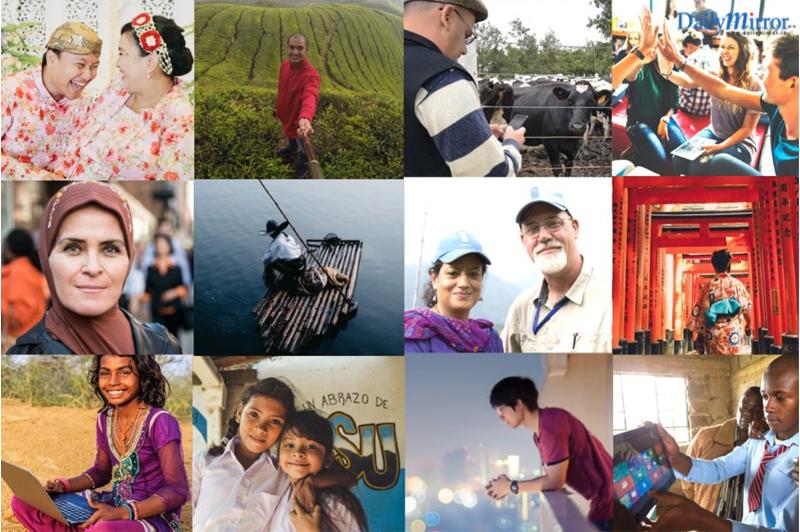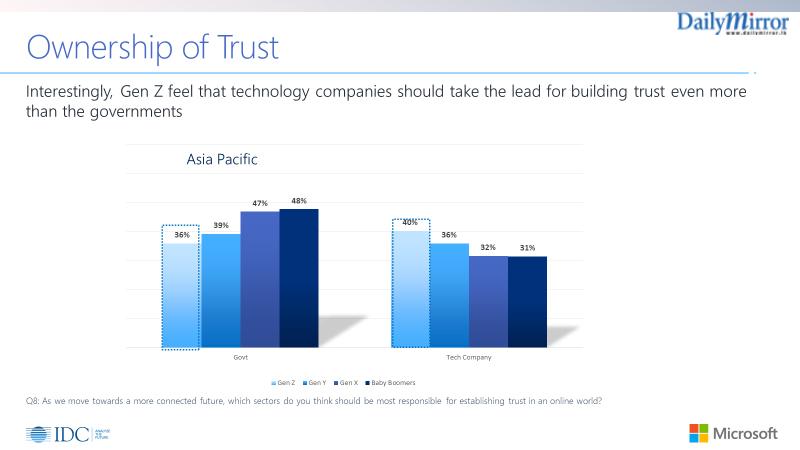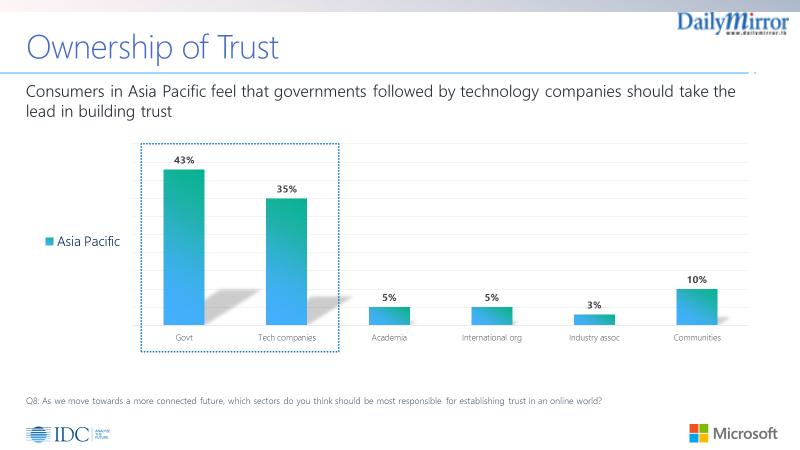Reply To:
Name - Reply Comment

By Antony Cook, Associate General Counsel, Corporate External and Legal Affairs, Microsoft Asia.
Asia is one of the most digitally active regions in the world. According to GSMA, two-thirds of the region’s populations have access to mobile subscriptions. This equates to 2.7 billion people.
Additionally, over 60% of the world’s youth population live in the Asia Pacific region[1]. These 750 million young men and women, aged 15 to 24 years old, are playing a big part in how the digital experience is changing.
The last decade has seen a huge shift towards digital services. There have been significant moves towards cashless transactions, online businesses and virtual customer services, especially in Asia.
Consumers in the region already spend more on online shopping than both North America and Europe combined. According to UNESCAP, consumers in Asia made up 47.2% of the world’s B2C e-commerce market in 2017. It is estimated that by 2021, this figure will rise to 48.5%
With more services moving online, it is inevitable that populations will move towards a more digital lifestyle. However, a Microsoft-IDC study, Understanding Consumer Trust in Digital Services in Asia, reveals concerns around the levels of trust in digital services in the region.
How can we make sense of these concerns, and how does it differ across the various generations that make use of such services?
Different generations and their relationships with digital services
The report highlights that the use of digital services is most prevalent in the areas of finance, healthcare, and education. Money can be sent and received online, hospital appointments can be booked through an app, and people can sit through an entire course without ever physically attending a class.
With greater reliance on these services, consumers are also increasingly aware of the risks involved in placing personal data used by these services online. According to the study, 40% of consumers in Asia Pacific have had their trust breached in some form. Additionally, only 31% of consumers believe that their personal data will be treated in a trustworthy manner by organizations offering digital services. This highlights the clear need for digital service provides to ensure they address consumer expectations related to trust as a core part of how they build and deliver services.
The survey also revealed, perhaps expectantly, that younger generations still rely heavily on the internet. The study categorized the generations as follows:
Gen Z – 15 to 25 years old (20%); Gen Y – 26 to 40 years old (30%); Gen X – 41 to 55 years old (30%); and Baby Boomers – 56 to 75 years old (20%).
Gen Y and Z are digital natives, having grown up with most of their lives online. Many choose convenience, at the price of personal data. These age groups generally have no qualms about sharing intimate information online, whether on social media or digital services.
There is, however, a growing awareness of the problems of providing one’s personal information to enable digital services. Recent high-profile news stories have increased awareness that data mining can enable the manipulation of consumers based on their online persona and preferences.
Consumers have concerns relating to their trust in the digital services they use and more people are calling for greater transparency in how companies use the data provided to them. They are placing more conditions upon how much information they share.
An interesting finding of Microsoft’s study is that Baby Boomers and Gen X-ers have had fewer negative experiences than millennials and Gen Z. 48% of Gen Z and 45% of Gen Y experienced negative trust-related experiences compared to 37% of Gen X and 31% of Baby Boomers.
It is possible that naturally, with greater usage, more information is made available online, therefore putting the younger generations at greater risk.
How to improve consumer trust?
Who should take responsibility for ensuring that consumer trust can be upheld? Perceptions regarding this also vary across the generations.
The study showed that consumers in Asia Pacific feel that Government should take the lead, in the responsibility for building trust, followed by technology companies indicating the need for a stronger partnership between the private and public sector.
Interestingly, Gen Z feels that technology companies should shoulder a higher responsibility for building trust – more so than governments. There is perhaps driven by a greater awareness amongst Gen Z and Gen Y about the necessity for companies to use personal data ethically.
As I’ve mentioned before, it is ultimately in everyone’s best interest to increase the level of trust in digital services. Governments, companies and individuals all need to be proactive in dealing with these important issues.
Possible solutions include increased dialogue between governments and tech companies with the recognition that civil society and industry groups provide an important perspective and voice in these dialogues. In addition, the use of trusted cloud platforms should be encouraged to ensure organizations leverage the investment in security and privacy that are built into these platforms to minimize the possibility of negative consumer experiences. The government also plays a critical role in deploying and enforcing regulations that protect customer information.
Asia’s digital economy offers vast opportunities, and organizations that address the current lack of trust in digital services by considering the above solutions stand to gain significant long-term success.
[1] https://www.unescap.org/resources/youth-asia-pacific

